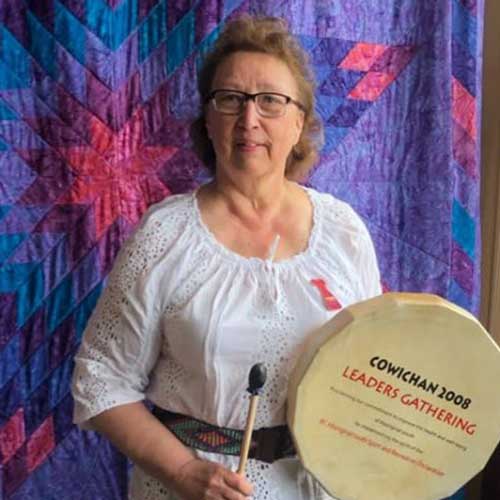Day One: Wednesday, February 21, 2024
10:00 EST
15 minWelcome and Opening Remarks from the Chair
10:15 EST
60 minHow Do Issues and Problems Implementing GBA Plus Play Out? Instructive Case Studies and Examples from WAGE
- The WAGE journedy – some of the milestones
- Embedding GBA Plus in government decision-making so legislation, policies, programs, and initiatives advance equality and close gaps between populations
- Increasing intersectionality in GBA Plus design and application so that structural factors and systemic discrimination are considered alongside identity and other factors
- Examples of implementation challenges and solutions
11:15 EST
45 minGBA Plus in the Not For Profit Sector: Transferable Lessons Learned
- How does GBA plus application differ in the non-profit sector?
- What are the unique challenges
- Measuring impact
- Lessons learned that are applicable in any context
12:00 EST
60 minBreak
13:00 EST
45 minNeurodiversity, Intersectionality and Neuro-inclusion
Crystal Bowen, CEO and Founder, Delta Learning Solutions Inc.
Neurodiversity is a concept that describes the natural diversity in how all our minds and brains operate. Some people function in ways that aren’t normative. Neurodivergence intersects with every marginalized community in Canada’s Wheel of Privilege and Power. This session will challenge you to explore and consider interesting new questions while you learn to incorporate neuro-inclusion into your practice.
- What factors contribute to missing some of the population who should have benefitted from a policy or program? What didn’t you consider?
- What strategies and approaches should you use to ensure all voices are included when making policy or program decisions?
- If you discover that an implemented policy or program has excluded some people, how should you approach and correct the situation?
13:45 EST
60 minImplementation Challenges and Solutions at City of Montreal
- What we have learned in our journey
- Advocating for inclusion of GBA+ across city services and boroughs
- Strengthen knowledge of GBA Plus issues among municipal departments using strategic capacity building initiatives, learning circles and resource and toolkit development
- Spearheading the institutionalization of GBA+ experimental knowledge through targeted initiatives
14:45 EST
15 minBreak
15:00 EST
45 minGathering the 2SLGBTQ+ Data You Need for GBA Plus
- How does Statistics Canada collect and report data on gender diversity, sexual orientation, and the 2SLGBTQ+ population?
- Challenges and opportunities in collecting data on the 2SLGBTQ+ population
- What does the data tell us when disaggregating 2SLGBTQ+ subpopulations?
- Looking Ahead: Statistics Canada’s ongoing efforts to address data gaps
- Resources for gathering 2SLGBTQ+ data for GBA+
15:45 EST
45 minThe MARCH 2023 Report of the Standing Senate Committee on “The Role of Gender Based Analysis Plus in the Policy Process: Reducing Barriers to an Inclusive intersectional Policy Analysis”
The intent of GBA Plus is to ensure that various intersecting identity factors are considered throughout the policy design process, from initial problem identification through to implementation and evaluation. Its purpose is ensuring that none of the diverse people encountering Canadian federal policies and programs are unintentionally harmed by or excluded from government policy and programs. This session will provide thoughtful and thought-provoking comments on Committee findings and observations including:
- Strengths of GBA Plus and success stories
- Significant barriers that continue to limit implementation in the federal government
- 15 recommendations to support a more fulsome intersectional analysis
- Questions about Data Gaps
- Measuring outcomes and evaluating progress
- Perceptions and resistance
16:30 EST
End of Day One
Day Two: Thursday, February 22, 2024
10:00 EST
15 minWelcome and Opening Remarks from the Chair
10:15 EST
45 minThe Indigenous GBA+ Tool Kit: Weaving Knowledge Into Your Own Work and Workplace
Barb Ward-Burkitt, Minister’s Advisory Council on Indigenous Women (MACIW)
- What is Indigenous GBA+
- What’s in the tool kit and how it can help you
- Tools for measuring and monitoring indigenous inclusion
11:00 EST
60 minGetting It Right! Obtaining Data and Assessing Data Quality
Dave Coderre, President, CAATS, Senior Data Analyst, River Analytics and Automation
- Defining your data requirements
- Accessing the data
- Assessing and identifying data quality issues
- Presenting your analytic results to management
12:00 EST
60 minBreak
13:00 EST
50 minWhen One Size Does Not Protect All: Understanding Why Gender Matters for Standardization and What to Do About It
- What are standards and how are they used?
- Why does gender matter in standards development?
- How can we increase the participation of women in standards development?
- How can we ensure standards are gender-responsive?
13:50 EST
50 minIntersectionality: Applying the GBA Plus Lens to the Immigrant Community
- Impact of government programs on immigrant communities in Canada
- Who should be consulted with respect to the impact of programs on immigrant communities?
- Various needs and important differences in different communities
- How can GBA+ improve positive impacts and reduce unintended consequences?
14:40 EST
20 minBreak
15:00 EST
60 minTools for Mainstreaming Equity, Diversity Inclusion: GBA Plus and Beyond
Gender-based Analysis Plus (GBA Plus) is an analytical tool derived from efforts by the Government of Canada to support gender mainstreaming in the development and delivery of policies and programs almost twenty years ago. It has been refined to address more than gender and to consider intersectional analysis such as Indigeneity, race, disability, gender identity and sexual orientation and has become embedded in planning, budgeting and reporting processes. While a powerful analytic framework, reviews of GBA+ have suggested ways in which it needs to be adapted or complemented to ensure that other dimensions of identity are considered as more than an add on. New tools have been proposed, for example, specifically to address anti-racism or Indigenous reconciliation. Finally, the implementation of GBA+ has been uneven and there have been suggestions for tools tailored more to, for example, diversity assessment in economic and innovation programs.
This session will review
- Origins, application and successes of GBA+
- Complementary tools and approaches
- Strategies for effective implementation and evaluation of action oriented gender and diversity analysis to drive change.
16:00 EST
45 minUsing an intersectionality Lens to Address Gender and Disability
Dr. Suzette Mitchell, Gender, Disability and Intersectionality
This session is framed within the context of the United Nations Convention on the Rights of Persons with Disabilities (CRPD), specifically regarding international commitments to address issues facing women and girls with disabilities. It draws from international research and development programming positioned at the intersection of gender inequality and disability inclusion.
The session will examine:
- How diverse groups of women and girls, and their different types of disabilities, both present differently and require different strategies to ensure their human rights are met.
- Strategies and practical examples for programming and empowerment initiatives.
16:45 EST
End of Day Two










